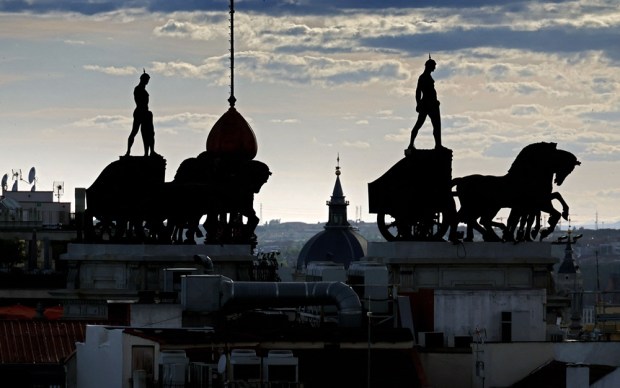I was thrilled to see the implacable enthusiasm of Afghani voters as they lined up in their thousands for hours to vote in the presidential election, despite the threats of Taleban lunatics to behead them. It makes our years of sacrifice and involvement in the war worthwhile and gives some hope that this benighted country has a safer future than we thought it might.
It seems their officials could also teach us a few things about running an election; so far they have not lost any ballot papers and, judging from the TV news, they have instituted a novel reform, to keep ballot papers secure in a sealed box. I wonder how that would work here.
There have been some interesting reactions to the government’s plans to reform Section 18C of the Racial Discrimination Act, but the most depressing one has been the lack of enthusiasm from some working journalists and, in some cases, their opposition to the notion that freedom of speech is a good thing and that its scope would and should be expanded by this reformist measure. You would think they would be up on the barricades shouting ‘liberty!’ and ‘down with the running dogs of politically correct censorship!’ But no; too many of them just go along with the tired old line that reforming Section 18C will let loose a rampage of bigoted racists or the other one that there has to be a limit on freedom or we will have a lot of people like Andrew Bolt running around and being free to say what they like.
If journalists are not going to climb into the vanguard of the intellectual fight for freedom, who will? They are the first victims of repression, so they should be the first champions of freedom. The other offenders who have perverted the cause of freedom during this rare chance to strengthen it have been the human rights mafia and the chief among them is the curiously named Castan Centre for Human Rights Law. Its director, Sarah Joseph, has just penned an extraordinary piece in the Age ( where else?) saying that freedom is a desirable concept ‘if one is rich’, it ‘protects the strong’, the current Section 18C really ‘enhances’ freedom, the freedoms we need are those like the freedom to die, the damage to the Sydney Biennale was an exercise in artists’ freedom of conscience and, in an exquisite Freudian slip, that ‘Discrimination law’, not, you will note, anti-discrimination law, will ‘actively protect freedom…’
Really? But I was conditioned long ago to the hang-dog attitude of journalists who oppose progressive reforms; during the first big stoush over reform of industrial relations in the 1980s, I found that journalists as a whole were arch conservatives with closed minds, opposed to all reform, continually harping that our IR system must be perfect because it has been there since 1904 and that you can’t trust ordinary workers to negotiate for themselves.
But this time, on Section 18C, some journalists seem to be so against freedom that I am suggesting a new motto for their union and bodies like the Castan Centre, with apologies to Voltaire: ‘I am opposed to everything you say and will fight to the death to stop you saying it.’
Opinions have raged back and forth about the appointment of knights and dames, which seems to me a dignified way of acknowledging the highest public service. The dominant reaction has been how this decision has thrown the ALP, their handmaidens in the press and assorted opinion-makers and moral guardians into a white rage of opposition. But for a serial student of politics, the really interesting and amusing aspect of this reaction is that it shows, once again, how remote the opposition is from getting a handle on Tony Abbott, acquiring the slightest understanding of how he operates or working out how to respond to his refreshing and original policies.
To put it bluntly, they do not know what is being done to them. While they are working up sweat about budget cuts, moaning about forests and agonising over same sex marriage, endangered species, links with the unions and all the other official issues, suddenly from right field comes a surprising but cunningly aimed missile, like the new honours proposal, and one that becomes for a few weeks the sole issue of public debate. When people next come to vote, they will not be concerned with how the policy on Knights and Dames is unique or even whether they like it; what they will remember by that time is that although they may not like all of Abbott’s policies, they have followed a theme where consistency, tradition, family, the constitution, the monarchy, frugality, support for traditional institutions, free enterprise, freedom and restraint in government spending are dominant.
People want the consistency, predictability and reliability they know they will get again from Abbott and will contrast it with the shifting sands of policy on the other side where you would not know what new harebrained social experiment or grand scheme worked out on the back of an envelope they might introduce.
Got something to add? Join the discussion and comment below.
Get 10 issues for just $10
Subscribe to The Spectator Australia today for the next 10 magazine issues, plus full online access, for just $10.
You might disagree with half of it, but you’ll enjoy reading all of it. Try your first month for free, then just $2 a week for the remainder of your first year.














Comments
Don't miss out
Join the conversation with other Spectator Australia readers. Subscribe to leave a comment.
SUBSCRIBEAlready a subscriber? Log in